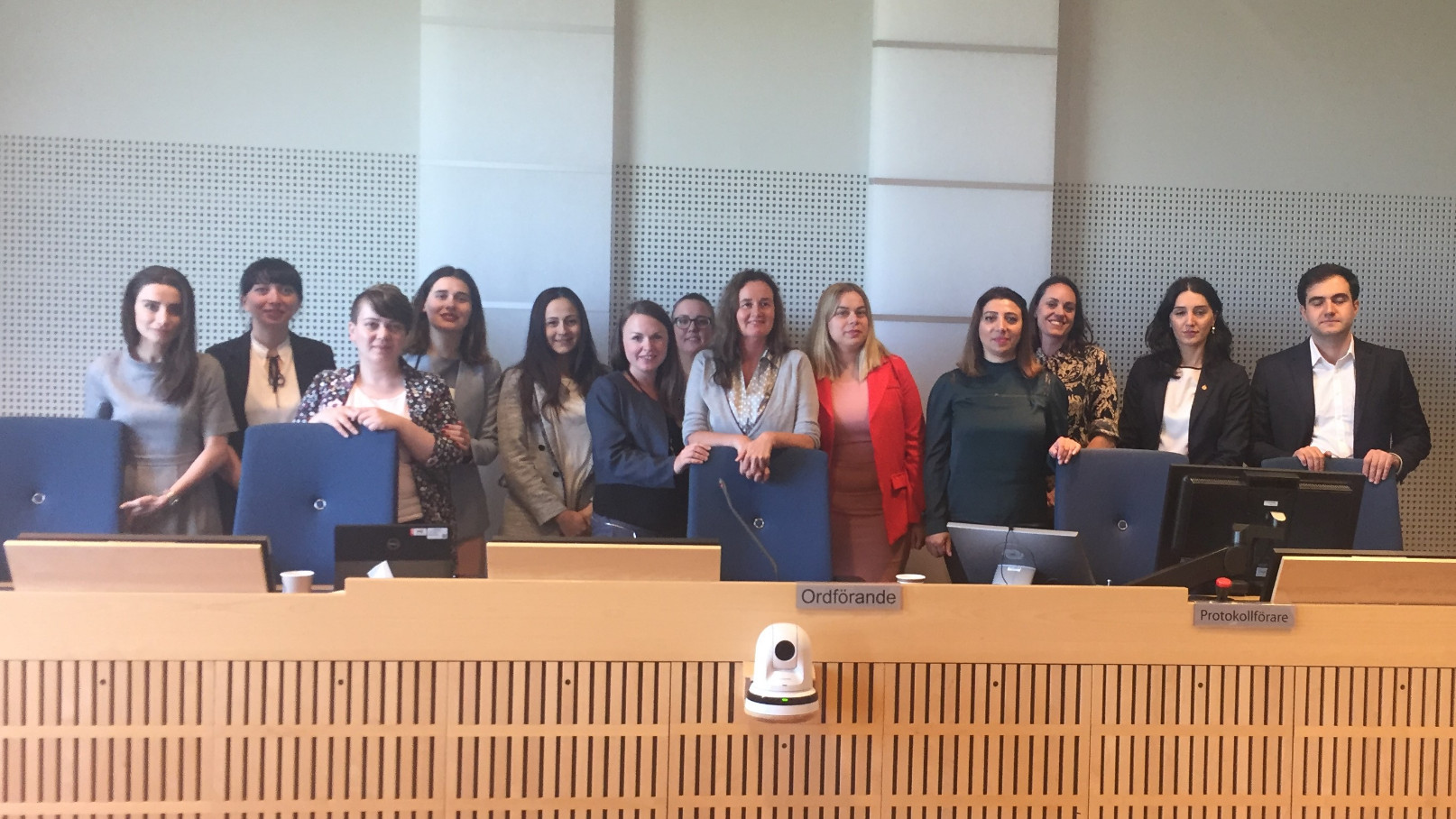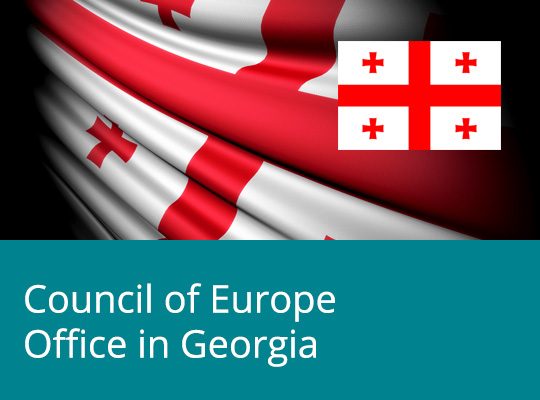On 18-20 June, Georgian state authorities visited Stockholm to learn about Swedish laws, policies and programmes to prevent and combat violence against women and domestic violence.
“A victim-centred and gender-sensitive approaches, and the existence of victim and witness support units within court system, were among the most interesting things I learnt during the study visit“, commented Salome Shengelia, from the Prosecutor’s Office.
The study visit also included colleagues from the Georgian Ministry of Internal Affairs, the Prosecutor’s Office, the Judiciary, the Public Defender’s Office and the State Fund for the Protection and Assistance of Victims of Human Trafficking.
The study visit programme included meetings with various state institutions and non-governmental organisations, such as the National Organisation for Women’s Shelters and Young Women’s Shelters (Roks), an umbrella organisation that works exclusively with and for women’s and young women’s shelters in Sweden.
Moreover, the Georgian delegation had an opportunity to learn about the Sweden’s national strategy fighting men’s violence against women, efficient police investigation and prosecution of crimes of violence against women, Swedish national data collection system on gender-based violence and support services for survivors of violence.
Georgian participants met with Amnesty International Sweden and learned about the main findings of the report ”Time for Change: Justice for Rape Survivors in the Nordic Countries’’. During the meeting, participants discussed challenges in the implementation of consent-based laws on sexual violence. Sweden has adopted legislation which defines rape clearly in terms of lack of consent.
As Deputy Public Defender of Georgia, Ekaterine Skhiladze mentioned, the experience shared during the meeting was extremely useful for their on-going work, as the Ombudsperson’s office, with the support of the Council of Europe, is currently conducting a research on a similar topic in Georgia.
Sweden and Georgia are both parties to the Council of Europe Convention on Preventing and Combating Violence against Women and Domestic Violence (Istanbul Convention) which obliges the states to criminalise sexual violence and define it by the lack of consent rather than the use of force.
The study visit was organised in the framework of the project ‘’Preventing and combating violence against women and domestic violence in Georgia”.




